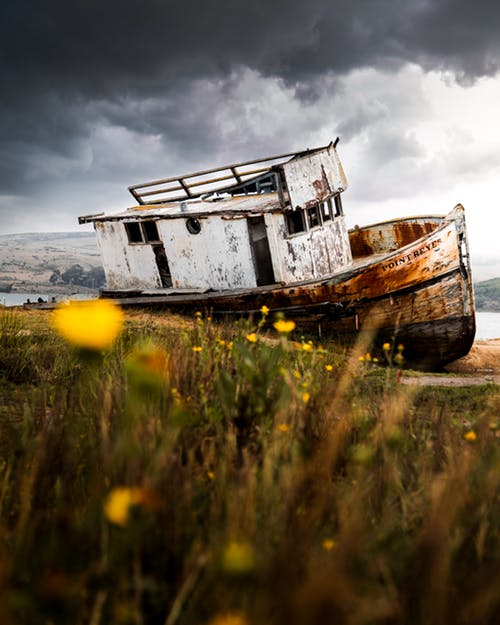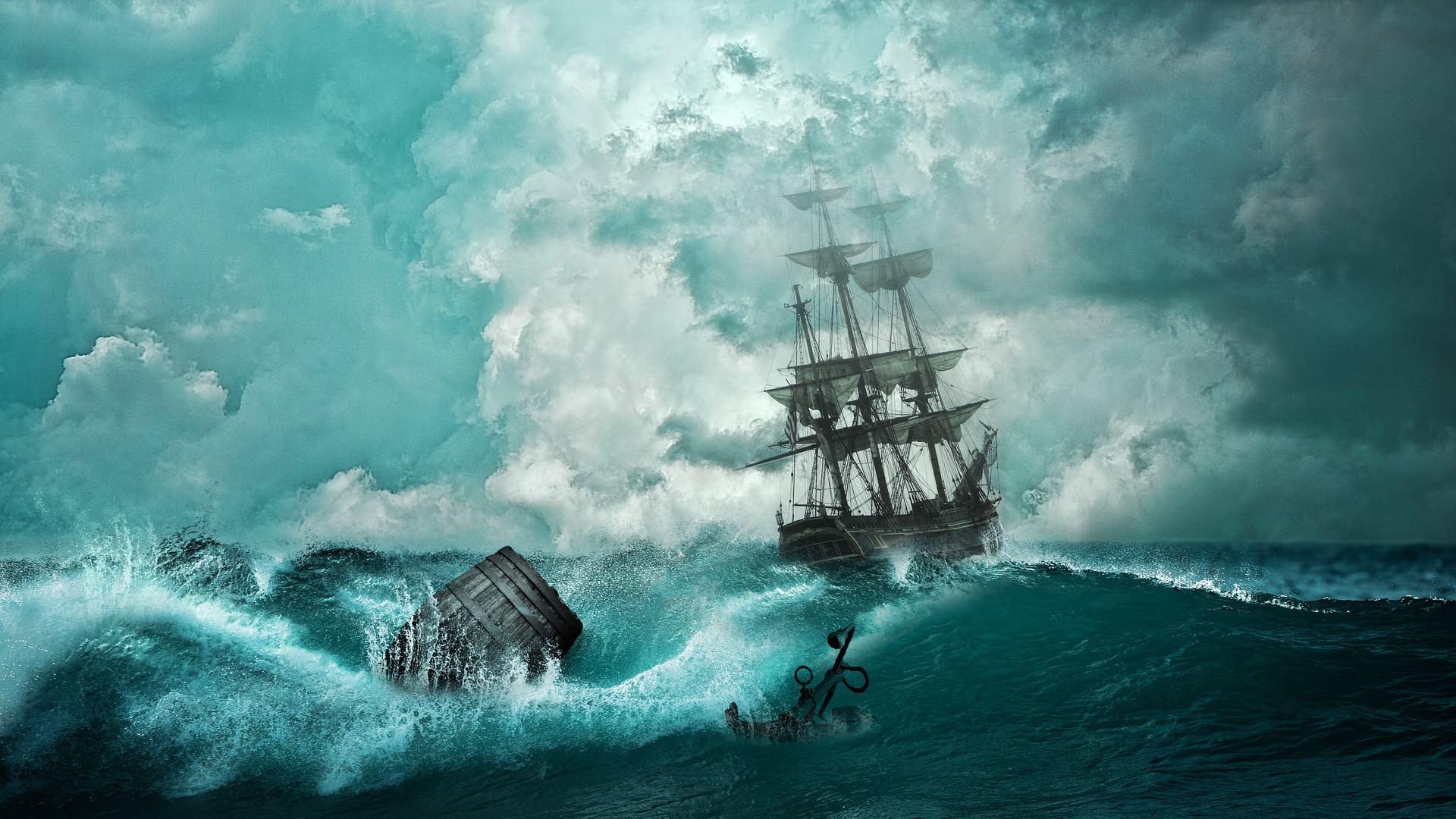GLEE! the great storm is over!
Four have recovered the land;
Forty gone down together
Into the boiling sand.
Ring, for the scant salvation!
Toll, for the bonnie souls,—
Neighbor and friend and bridegroom,
Spinning upon the shoals!
How they will tell the shipwreck
When winter shakes the door,
Till the children ask, “But the forty?
Did they come back no more?”
Then a silence suffuses the story,
And a softness the teller’s eye;
And the children no further question,
And only the waves reply.
~Emily Dickinson
This poem reminds me of a song sung by William Pint and Felicia Dale, so I’m including the lyrics here in full, though there are rather a lot of them. They recount a true story–the loss of the British lifeboat The Mary Stanford on this date ninety-one years ago. It’s a tragic tale, made all the more tragic by the fact that the vessel which The Mary Stanford was sent out to rescue was already saved by the time the English lifeboat launched. It seems like the kind of story that would have struck a chord in Dickinson’s imagination.
When master John Stanford of London town died
They read out his will and his legacy spied
It said take this bequest for to build me a craft
So that with it my name shouldn’t die
And give it to the R.N.L.I.
So they fashioned a lifeboat of Liverpool class
38 feet from the stem to the aft
With a close reefed mainsail on a 20 foot mast
And to grant the last wish of his life
Named it Mary after his wife
She went into service in 1916
And 63 times from the boathouse she screamed
Cross the shale of Rye Bay
Through the teeth of the storm
And into the mouth of the waves
All sailors lives there to save
Johnny come home they all sing from the pier
On the 15th day of November each year
And one day the sea she will give up her dead
And home will come young Johnny Head
Home will come young Johnny Head
Young Johnny Head
Had just turned seventeen
And to serve on the lifeboat was
Young Johnny’s dream
His father was the coxswain
His brother in the crew
And to serve he was willing to die
On the Mary Stanford of Rye
On November 15th
With the storm at its height
The Alice of Riga was losing her fight
Seven miles from Dungeness
She was drifting and lost
And the crew prayed and cried
To the moon
That’s when they heard the maroon
It was four in the morning
When young Johnny Head
On hearing the signal
He leapt from his bed
With his father and brother
They ran like the wind
That whipped up the furious waves
But there were lives to be saved
To haul out the lifeboat
Took blood, sweat and tears
It took them two hours
Must have seemed like two years
Exhausted and spent, they set her afloat
And into the barbarous waves
Rowed Mary to Alice’s aid
It was 6:45 when the shoremen lost sight
of the Mary
As she pitched out into the night
And at 6:51 the coastguard he rang,
Saying “Stand down your lifeboatmen
brave
For the Alice is already saved.”
Nobody knows from that day to this,
Why the coastguard got word
At eleven past six
But the message he kept forty minutes
or more
While seventeen brave men of Rye
Rowed into the tempest to die
It was almost noon on the terrible morn
And the families and launch crew had
Waited since dawn
When suddenly somebody
Pointed and cried
And there in the surf and the spray
The Mary Stanford she lay
Her body was battered
Her keel was upright
No close-reefed mainsail
No crewman in sight
They hauled her ashore
And they knelt round and prayed
Then gazed out again at the main
And the tears they ran like the rain
Then one by one
The sea gave up her dead
First Willie Clark then young Jimmy Head
Then Albert and Rob, the two Cutting boys
And three from the Pope family
And nine more sons of the sea
But young Johnny Head
He never came home
He lies out somewhere in the ocean alone
His comrades lie buried
In the churchyard at Rye
And they keep him a space for his bed
One day they’ll find Johnny Head
So the next time you sail
Around Hastings and Rye
Look to the distance and keep out an eye
And if you see a young man from the R.N.L.I.
Standing guard over the foam
You’ll know that Johnny’s come home
~Allen Maslen, “The Mary Stanford of Rye”

